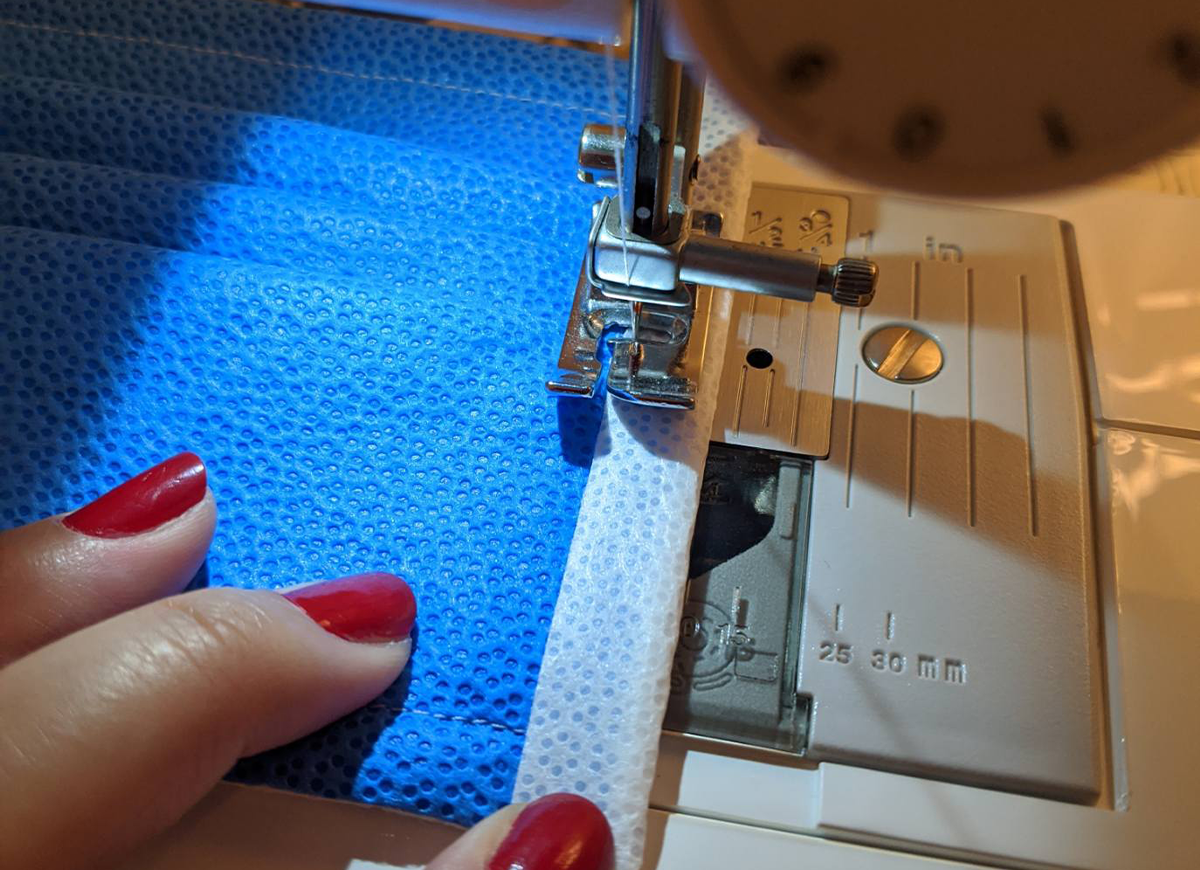Costume shop sews hundreds of masks for UF Health

As artists, we may find comfort in knowing that the arts still have the power to significantly impact the lives of others, even in a global pandemic.
Since the University of Florida moved its classes online, a lot of students and faculty have been left wondering, “How can I help?”
After happening upon a CNN news story, Jennifer Dasher, Assistant Professor of Costume Design in the UF School of Theatre and Dance, came up with an answer. Partnering with the UF Health Department of Anesthesiology, Dasher and her colleagues Megan Szloboda, costume shop manager, and Ryan Rankin, draper, used their costuming expertise to make masks for UF Health Shands Hospital.
“It is a super cool project,” Dasher said. “I think everybody is feeling the magnitude of what’s happening and the uncertainty of everything, so this has been really helpful in terms of feeling more calm. It feels like we are doing something productive.”
Working six hours a day, five days a week, the trio have managed to get mask-making down to a science. The Department of Anesthesiology discovered that repurposed surgical wrap could be used to construct sustainable, long-lasting masks,. The material is readily available and able to be sterilized. Using the cut and prepped materials provided to them by the hospital, Dasher, Szloboda and Rankin are tasked with sewing the masks together.
With the goal of efficiently producing as many masks as possible, Dasher and Rankin developed a production process that has them down to an average of seven minutes per mask. Their first week they were able to turn over nearly 400 masks to the hospital.
“It is definitely not what we normally do, but it is needed,” Dasher said. “For me, with this project, it was really important to hear from the hospital what they needed. So, we are happy to do the work as long as it is for the healthcare providers that are helping us.”
Although the day-to-day operations of the costume shop have changed drastically, mask-making is not the only thing the costume shop is up to. Like faculty across the College of the Arts, the costume faculty is having to navigate an online curriculum for an extremely hands-on major. The team has come up with a number of ways to keep their students engaged through costume management projects, office hours, guest lectures, and “Wednesday chats,” in collaboration with the University of Buffalo, where students can talk openly with their peers about their feelings and concerns.
“I think it is just helpful for people to still feel connected to their own university and to the greater world as well,” Dasher said.
The three never imagined that the costume shop, normally buzzing with students creating costumes for the department’s season of mainstages, would turn into an assembly line for surgical masks. Nevertheless, they said they are grateful for the opportunity to use their expertise to help in any way possible.